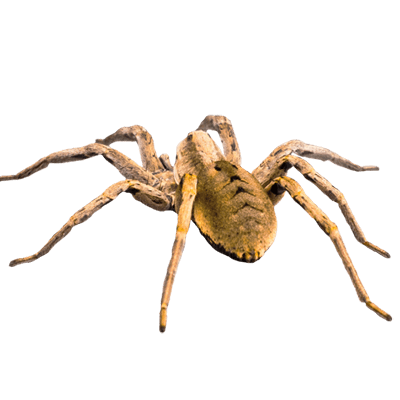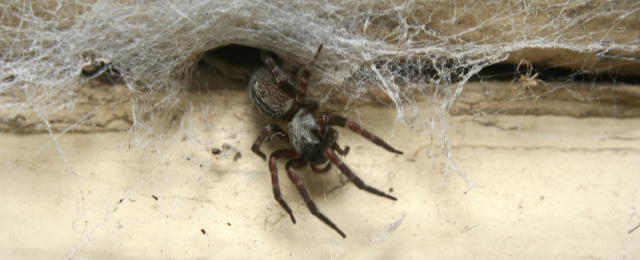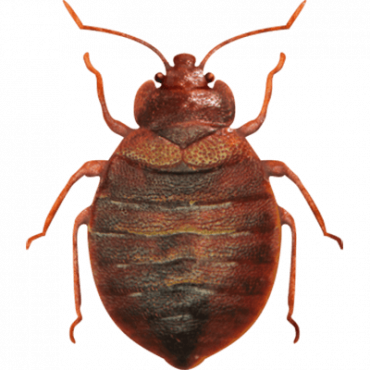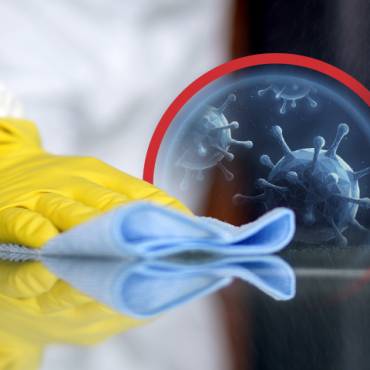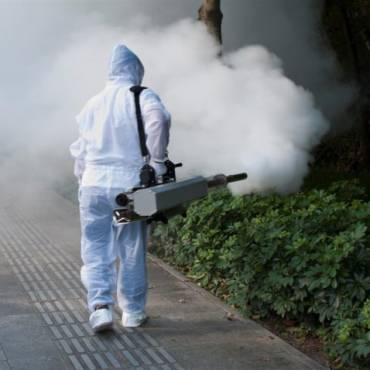Spiders Pest Control Services
Pest Control, fumigation and extermination services for Spiders in Nairobi, Kiambu, Machakos, Thika, Nakuru, Kajiado, Narok, Eldoret, Mombasa and the all accross Kenya. Top standard pest control services areavailable for homes, offices, schools and learning institutions, commercial installments like factories and warehouses, agricultural farmlands, and gardens. You can also get garden treatment solutions.
Most spiders are harmless and spend their lives trapping and eating insects. Every bug they consume is one you won’t have to swat or spray. However, it’s understandable if you want to avoid them in the house, especially a black widow or a brown recluse.1 To get rid of spiders and cobwebs when they appear inside the home, read on to learn helpful tips and prevention methods.
The Biology of a spider
Although often considered insects, spiders are actually arachnids, with eight legs rather than the six found in insect species, and two main body parts vs. the three parts common to all insects. And virtually all spiders are carnivores, with fangs to kill prey.
Some spiders spin webs to help them trap flying insects, while other spiders are active hunters that jump or run to catch insects. Spiders with short legs are generally jumpers that leap for their prey, while the long-legged species, such as wolf spiders, daddy-long-legs, and brown recluse spiders, are runners that chase down prey. In other words, just because you have no cobwebs doesn’t mean your home is free of spiders.
The lifecycle of a spider is quite different from that of an insect. A female spider can lay up to 3,000 eggs, and the embryo inside the egg undergoes all larval phases while inside the egg sac, emerging as a fully developed but tiny spider.
As the spiderling matures, it will eat almost any organic material, but quite soon it will develop the ability to catch its own live prey. The spiderling will molt several times as it grows, and its old exoskeletons can often be seen in spiderwebs. After five to 10 molts, generally achieved after several months, the spider is mature and ready to reproduce
Why Pesticides Don’t Work on Spiders some times
Most insects habitually clean their mouthparts with their legs and feet, which means that spray pesticides are easily transferred to the insect’s mouth, where it is ingested.
Spiders, on the other hand have long legs that keep their bodies well above the surface, and any mouth contact is performed with specialized pedipalp appendages that never touch the ground, so there’s little chance of absorbing pesticide from surface contact.
Many spiders also spend most of their time in delicate lacy webs, not walking across surfaces where they could readily pick up pesticides. Short of a direct spray into the spider’s face with a contact pesticide, spraying is not very effective for getting rid of spiders.
There may, however, be limited effectiveness to using a residual insecticide in the cracks and crevices that spiders pass through. As they move through tight cracks, spiders may rub against the surfaces and pick up pesticides on their heads and mouthparts.
Top 5 Ways to Get Rid of Spiders
1. Vacuum All Corners and Cracks
At least once a season, use the wand attachment on your vacuum cleaner to thoroughly clean all corners of your home, including any cracks in the walls. You won’t get all spiders but will certainly put a dent in the population. It’s not just cobwebs you should look for; keep an eye out for small jumping and running spiders, which don’t use webs at all.
Immediately empty the vacuum cleaner and dispose of the bag outdoors.
2. Move Spiders to New Homes
This method may not be for anyone squeamish about spiders, and it definitely should not be tried if there’s any likelihood you are dealing with a seriously poisonous spider. But for gentle-hearted homeowners, it is possible to carefully and gently trap a spider in a box or jar and move it somewhere that makes it less of a nuisance. Moved to the garden or to an abandoned shed, barn, or other building will allow the creature to continue its insect-hunting ways without bothering you or your family. Be aware, however, that the spider may well seek another warm indoor spot once the winter approaches.
3. Swat the Spiders
Spiders can sometimes be killed with a fly swatter, but these creatures are sturdier than insects, with a hard exoskeleton that resists light blows. It will take a good hard blow with a fly swatter—or better yet, a rolled-up magazine—to dispatch some spiders. After killing the spider, carefully scoop it up for disposal, making sure not to touch it. There is a very small chance of brushing against the spider’s fangs if you touch it with bare skin.
4. Treat Cracks and Crevices
Broadcast spraying with chemical pesticides is rarely very effective with spiders, and it’s usually not recommended for general use indoors. But you may have some success with treating the cracks and holes through which spiders pass with a residual pesticide designed for spiders. There are several spray and powder products sold as ant-and-spider killers that will work, but it will take patience and repeated application.
5. Use Organic Pesticides
There are a variety of organic, non-toxic products that will help in your battle against spiders. Most of these products are based on peppermint oil or another natural substance. Even a salt-water solution will kill many spiders if they are hit directly. Other types of organic pesticides that work well for garden insects may not work at all for spiders.
Pyrethrin, a natural pesticide made from extracts from chrysanthemum flowers, will kill spiders (and other pests) if they receive a direct hit.4
6. Use Sticky Spider Traps
A variety of sticky traps are available to trap spiders and other pests. Most of these products do not contain any attractant materials, but a spider that sees flies or other insects struggling in a sticky trap will likely check it out. You will need to set plenty of these traps around your house; focus on areas where you have seen spiders passing through.
Sticky traps come in many designs, ranging from flat pads coated with a sticky surface to box-shaped enclosures so you don’t have to see the trapped spiders. Where a glue trap is particularly successful at trapping spiders, you likely have identified a source of entry. Look for gaps in the walls and set more traps at this location, then use caulk or another material to seal holes and cracks.
What Causes Spiders infestations?
Spiders are attracted to any spaces that provide them with food sources, especially lots of insects that can be trapped in webs or chased down. Spiders prefer areas that are rarely cleaned or otherwise disturbed, which is why dark basements, attics, garages, and outbuildings so often are homes to spiders. Good cleanliness practices that reduce insect populations will also reduce the number of spiders.
How to Prevent and control Spiders infestations
The best way to control running and jumping spiders at home is to control their food sources around the house. Spiders eat insects, so reducing the insect population in your home will usually encourage spiders to go elsewhere.
Most spiders like to hang out near light sources, which helps them capture flying insects that are attracted to light. A simple habit of turning lights off at night can help reduce spider populations.
Spiders very likely are entering your home through cracks and crevices, so thoroughly weatherproofing the windows, doors, walls, and foundations can greatly reduce the spider population in your home.
Commercial Pest Control in Nairobi
Commercial pest control is a very important aspect for every business that intends to maintain high levels of production quality and public safety...
Construction Pest Control in Kenya
We offer Construction Pest Control Services in Nairobi and the rest of Kenya for cocroaches, rats, mice, flies, fleas, snakes, lizards andother...
Residential and Commercial Pest Control Services in Nairobi Kenya
- Commercial Pest Control Services in Nairobi Kenya
- Construction Pest control servies in Nairobi Kenya
- Domestic & Residential Pest Control Services in Nairobi Kenya
- Pest control services by disinfection
- Pest Control By Fumigation
- Wasps Pest Control in Nairobi Kenya
- Ticks Pest Control in Nairobi Kenya
- Spiders Pest Control in Nairobi Kenya
- Snakes Pest Control in Nairobi Kenya
- Rodents Pest Control in Nairobi Kenya
- Rats Pest Control in Nairobi Kenya
- Moths Pest Control in Nairobi Kenya
- Mosquito Pest Control in Nairobi Kenya
- Mice / Mouse Pest Control in Nairobi Kenya
- Flies Pest Control in Nairobi Kenya
- Fleas Pest Control in Nairobi Kenya
- Cocroaches Pest Control in Nairobi Kenya
- Birds Pest Control in Nairobi Kenya
- Bees Pest Control in Nairobi Kenya
- Insect Pest Control in Nairobi Kenya
- Rodents Pest Control in Nairobi Kenya

